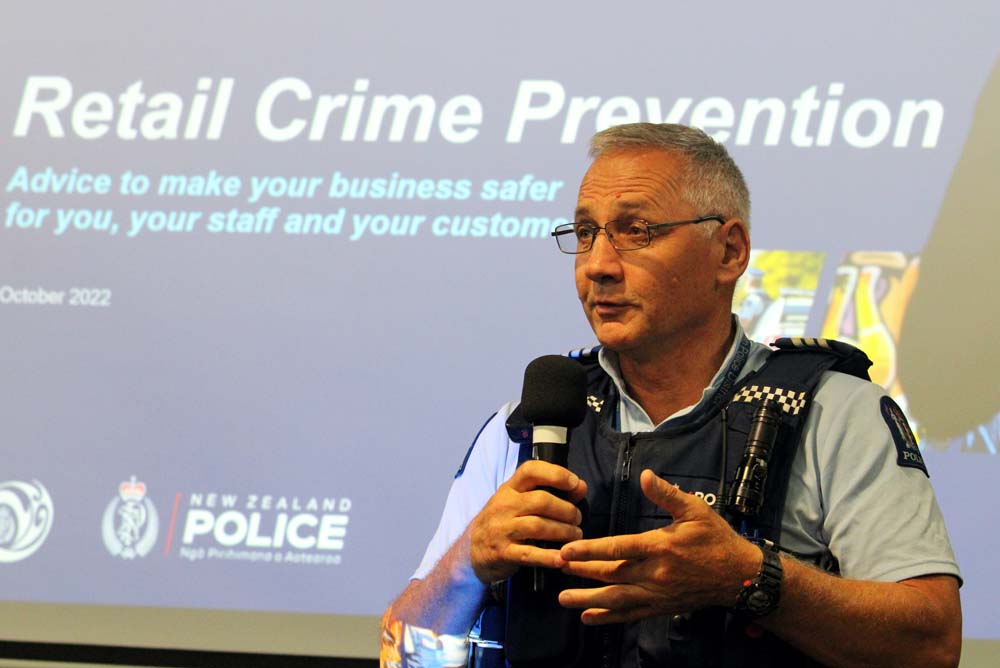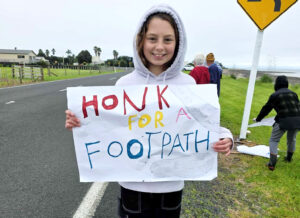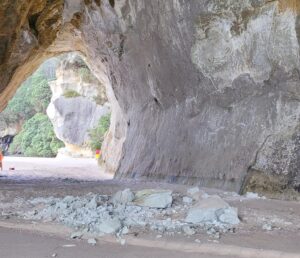The criminals commiting ram raid offences in Thames are generally the “overflow” of felons targeting bigger centres like Hamilton and Auckland.
The youngest being 10-years-old.
Around two dozen people attending a crime meeting organised by the Thames Business Association last week were also told that social media and rivalry among offenders was a motivator behind the raids.
“It’s almost like a competition between the Hamilton group and Auckland group,” area prevention manager and acting Senior Sergeant John Reid said.
“A few months ago there was a ram raid into a shopping mall in Auckland, and a few nights later, the same thing happened in Hamilton. So, there’s certainly a social media element; it’s like they’re trying to one-up each other.”
Criminals also live-stream the ram raids for kudos, but Senior Sergeant Tony Mumford said the offenders targeting Thames were not local to the area.
“What we need to have a look at is who is doing the ram raids – Hamilton has literally been smashed by ram raids; we get the overflow,” he said.
“When ram raids take place, generally the offenders will steal two or three cars, travel in convoy, one will drive through the door, the rest will get out, grab what they can, and get in the cars that are still there.
“Pressure was put on the group of offenders that predominantly came from Auckland, and spread to Hamilton, so they started looking elsewhere, which is why they came here.”
A report presented by Police to the business association in November said five offenders had recently been charged with a total of 81 offences.
One was a deportee from Australia, two were responsible for a large number of thefts from supermarkets and other shops, and one focused on thefts, burglaries, and frauds within Thames.
The November 30 meeting was a private forum for members of the business association to ask what they could do to protect themselves and their business from crime, but Thames Community Board member Kishan Raikwar said he wasn’t sure how he could stop illegal activity from occurring at his restaurant, Gastronomics.
“We’ve always been soft on the people doing the silly things,” he said.
Thames-Coromandel District Mayor Len Salt attended the meeting and said conversations he’s had with business owners had centred around criminal activity in the area, and what could be done to curb it.
He said while the numbers at the meeting were smaller than expected, he was encouraged that it could mean Thames was not yet at “crisis level”.
“However, if you walk down the main street of Thames, you will see boarded up shops, and that to me is heartbreaking.”
He said people in the community needed assistance to put tools in place to prevent the town from “getting any further down the road to where Hamilton is or Auckland is”.
Thames Community Constable Gareth Carter said technology such as Automatic Number Plate Recognition (ANPR) cameras were an asset to local police, but on-the-ground work done by the likes of the Thames Community Patrol was another tool in the prevention tool belt.
“I’m the police liaison officer for the patrol and the problem is that the community doesn’t really know about them – everyone calls them ‘night owls’ – but they’ve been around for 20 years and we’ve been trying to put a bit more of a public view on it and get young ones joining in.”

Senior Sergeant Tony Mumford spoke to a group of business owners concerned about crime. Photo: KELLEY TANTAU
Police meet with Thames business owners




